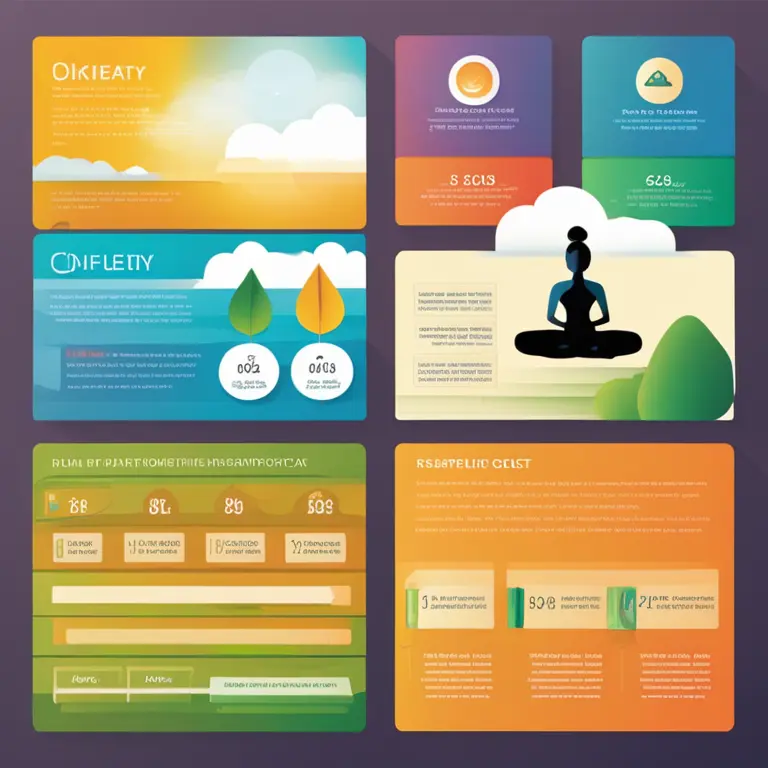
The Lasting Impact of Meditation on Well-being
Delve into the long-term effects of meditation and how it can potentially leave a lasting mark on your mental, emotional, and physical health.
article by Hina Kurosawa
Meditation: A Brief Overview
Meditation has been a cornerstone of spiritual and wellness practices for thousands of years, revered for its calming and clarifying effects on the mind. It involves various techniques, such as mindfulness or focusing the mind on a particular thought, object, or activity, to train attention and awareness, and achieve a mentally clear and emotionally calm and stable state. In contemporary times, meditation has transcended its spiritual origins, becoming a popular tool for stress reduction and self-improvement. Questions often arise regarding the longevity of meditation's benefits and whether these effects extend beyond the immediate session.

Scientific Insights Into Meditation
Researchers continue to demystify how meditation affects the brain and body. Numerous studies point to benefits such as reduced stress, improved mood, and enhanced cognitive function. These effects are initially temporary, manifesting during or immediately after a meditation session. However, emerging research has increasingly suggested that long-term practice can lead to neuroplastic changes—the brain's ability to reorganize itself by forming new neural connections throughout life. Regular meditators might find these changes become lasting traits, manifesting as persistent reductions in stress reactivity, and ongoing improvements in attention and emotional regulation.

Duration and Frequency of Practice
The permanence of meditation's benefits tends to correlate with the consistency and duration of practice. Like exercising a muscle, the more you engage in meditation, the stronger and more enduring the results. Long-term practitioners often report sustained improvements in stress management and overall well-being. These anecdotes are supported by longitudinal studies demonstrating that consistent meditators maintain their gains in various psychological health metrics over time.

Meditation and Emotional Resilience
Emotional resilience is another area where the lasting impact of meditation is observed. By fostering mindfulness and present-moment awareness, meditation helps practitioners develop a more observant and less reactive stance toward their thoughts and emotions. Over time, this can lead to profound shifts in how one relates to their internal experiences, leading to stable changes in emotional reactivity and resilience. The ongoing practice thus helps to create and fortify a more equanimous approach to life's challenges.
Physical Health and Meditation's Longevity
Physical health can also experience the enduring benefits of meditation. Stress reduction through meditation can lower blood pressure and reduce the risk of heart disease. Additionally, some research points to meditation potentially enhancing immune response, which could have lasting effects on one's ability to fend off illnesses. However, as with any intervention, individual experiences will vary, and continued practice plays a crucial role in maintaining these physical health benefits.
The Role of Lifestyle Integration
To truly reap the long-term rewards of meditation, one must integrate it into their lifestyle rather than treating it as a temporary fix or occasional activity. This integration ensures that the principles of meditation permeate everyday life, influencing how one deals with stress, interpersonal relationships, and life's ups and downs. Over time, the line between the meditative state and the state of being becomes blurred, as calmness and clarity become central to the practitioner's baseline experience.
Maintaining Benefits and Overcoming Plateaus
While the benefits of meditation can be long-lasting, it's also common for practitioners to encounter plateaus or feel like the progression is slowing down. Ensuring progression in meditation can involve experimenting with different techniques, attending retreats, or engaging with a meditation community for support. As with many practices, variety and a commitment to growth can help sustain the benefits and lead to new insights and developments within one's meditation journey.
Published: 1/14/2024
Modified: 1/15/2024
More predictions
Come back here soon to learn more about yourself and your future


Calming the Storm: Mindfulness Meditation for Anger
Discover how mindfulness meditation can be a powerful tool for anger management, promoting inner peace and emotional balance.


Healing Through Mindfulness: Meditation & Trauma Recovery
Mindfulness meditation offers a powerful tool for individuals seeking solace and healing from traumatic experiences. Discover how this practice can aid in the journey towards inner peace.


Easing Loneliness with Mindfulness Meditation
Explore how mindfulness meditation can provide solace and connection to alleviate the feelings of loneliness.